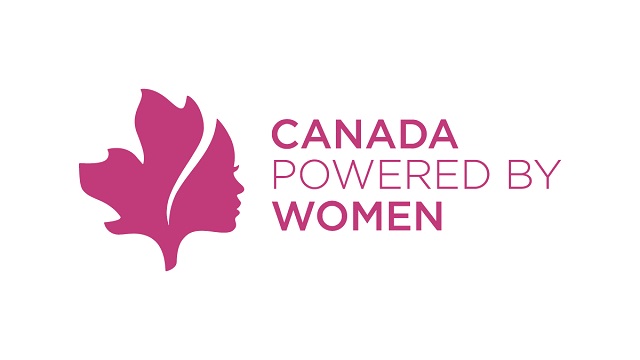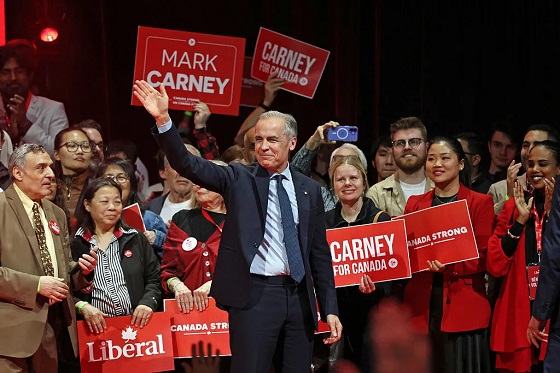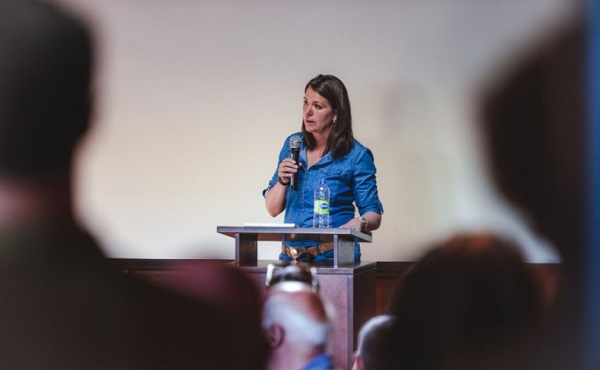Energy
Rising cost of living influencing women’s opinions on Canadian oil and gas

News release from CanadaPoweredByWomen.ca
New survey shows engaged Canadian women prioritize standard of living along with continued development of Canadian energy
The rising cost of living may be shifting national opinions about Canadian oil and gas among informed and engaged Canadian women, according to a new survey released by Canada Powered by Women (CPW). The Leger survey reveals a significant majority of engaged Canadian women (78 per cent) support the production and distribution of Canadian oil and gas, and the work the oil and gas industry is doing with innovation and technology to reduce Canadian and global emissions, if it means prioritizing their standard of living. More than half say they are not willing to sacrifice their own prosperity to reduce global emissions by transforming away from oil and gas.
The survey data illustrates that women are overwhelmingly united in recognizing the links between a thriving energy sector in Canada, including the continued production of oil and gas, a prosperous economy and an affordable standard of living.
“The survey results highlight the ongoing challenges that women across the country are facing when it comes to balancing affordability and sharing their opinions on energy development,” said Canada Powered by Women Board Chair, Sue Riddell Rose. “This further strengthens the critical need for a platform like Canada Powered by Women that elevates the voice of women, providing them a channel to participate in constructive conversation surrounding one of the most important elements of our lives and our economy – energy.”
Despite prioritizing their standard of living, engaged Canadian women very much care about the environment. Most surveyed women across the country stated they want to see a focus on LNG and an energy mix of renewables and fossil fuels, to secure energy independence and boost the Canadian economy while reducing emissions at the same time.
“The participation of women in the ongoing dialogue is an essential step towards a more sustainable and prosperous future for everyone,” said Tracey Bodnarchuk, CEO of Canada Powered by Women. “This is why we’re continuing to build on the work we began earlier this year. Seventy-six per cent of the women we surveyed want to have a voice about the future of energy in Canada. By creating informed, trusted spaces and facilitating bold conversations, we listen and work to amplify the voices of Canadian women in our communities and boardrooms.”
“The survey findings make it clear that Canada’s energy industry is supported by engaged women, especially when they connect the dots with the economy and their own standard of living,” said Paige Schoenfeld, Senior Vice President at Leger. “Measuring shifts in attitudes allows us to gain a deeper understanding of the priorities of the women we’re talking to, and this can further help advance the important conversations on energy transformation that are already happening.”
See our research highlights here.
About Canada Powered by Women

In 2019, a group of women with backgrounds in various sectors – including energy, founded Canada Powered by Women to put the spotlight on an important gap – women’s voices in the energy transformation conversation and the balance of energy security, the environment and the economy. The organization aims to understand what women across the country are thinking and feeling and provides opportunities to bring women together to find common ground on energy transformation – to be a vehicle for the voices of many women across Canada in a manner that is unignorable and has real impact.
Canada Powered by Women facilitates discussions amongst women across the country, creating a trusted place to talk about complex issues that matter, a place to listen and a place to raise awareness and create positive change for all Canadians. Learn more at canadapoweredbywomen.ca
Alberta
It’s On! Alberta Challenging Liberals Unconstitutional and Destructive Net-Zero Legislation

“If Ottawa had it’s way Albertans would be left to freeze in the dark”
The ineffective federal net-zero electricity regulations will not reduce emissions or benefit Albertans but will increase costs and lead to supply shortages.
The risk of power outages during a hot summer or the depths of harsh winter cold snaps, are not unrealistic outcomes if these regulations are implemented. According to the Alberta Electric System Operator’s analysis, the regulations in question would make Alberta’s electricity system more than 100 times less reliable than the province’s supply adequacy standard. Albertans expect their electricity to remain affordable and reliable, but implementation of these regulations could increase costs by a staggering 35 per cent.
Canada’s constitution is clear. Provinces have exclusive jurisdiction over the development, conservation and management of sites and facilities in the province for the generation and production of electrical energy. That is why Alberta’s government is referring the constitutionality of the federal government’s recent net-zero electricity regulations to the Court of Appeal of Alberta.
“The federal government refused to work collaboratively or listen to Canadians while developing these regulations. The results are ineffective, unachievable and irresponsible, and place Albertans’ livelihoods – and more importantly, lives – at significant risk. Our government will not accept unconstitutional net-zero regulations that leave Albertans vulnerable to blackouts in the middle of summer and winter when they need electricity the most.”
“The introduction of the Clean Electricity Regulations in Alberta by the federal government is another example of dangerous federal overreach. These regulations will create unpredictable power outages in the months when Albertans need reliable energy the most. They will also cause power prices to soar in Alberta, which will hit our vulnerable the hardest.”
Finalized in December 2024, the federal electricity regulations impose strict carbon limits on fossil fuel power, in an attempt to force a net-zero grid, an unachievable target given current technology and infrastructure. The reliance on unproven technologies makes it almost impossible to operate natural gas plants without costly upgrades, threatening investment, grid reliability, and Alberta’s energy security.
“Ottawa’s electricity regulations will leave Albertans in the dark. They aren’t about reducing emissions – they are unconstitutional, ideological activist policies based on standards that can’t be met and technology that doesn’t exist. It will drive away investment and punish businesses, provinces and families for using natural gas for reliable, dispatchable power. We will not put families at risk from safety and affordability impacts – rationing power during the coldest days of the year – and we will continue to stand up for Albertans.”
“Albertans depend on electricity to provide for their families, power their businesses and pursue their dreams. The federal government’s Clean Electricity Regulations threaten both the affordability and reliability of our power grid, and we will not stand by as these regulations put the well-being of Albertans at risk.”
Related information
- Conference Board of Canada socio-economic Impacts of Canada’s 2030 Emissions Reduction Plan – (April 2025)
- Alberta Electric System Operator’s position on Canadian Energy Regulations
Alberta
Alberta’s future in Canada depends on Carney’s greatest fear: Trump or Climate Change

Oh, Canada
We find it endlessly fascinating that most Canadians believe they live in a representative democracy, where aspiring candidates engage in authentic politicking to earn their place in office. So accustomed are Canada’s power brokers to getting their way, they rarely bother to cover their tracks. A careful reading of the notoriously pliant Canadian press makes anticipating future events in the country surprisingly straightforward.
Back in December, when Pierre Poilievre was given better than 90% odds of replacing Prime Minister Justin Trudeau—and Mark Carney was still just an uncharismatic banker few had heard of—we engaged in some not-so-speculative dot-connecting and correctly predicted Carney’s rise to the top spot. Our interest was driven by the notoriously rocky relationship between Ottawa and the Province of Alberta, home to one of the world’s largest hydrocarbon reserves, and how Carney’s rise might be a catalyst for resetting Canada’s energy trajectory. In a follow-up article titled “The Fix Is In,” we laid out a few more predictions:
“Here’s how the play is likely to unfold in the weeks and months ahead: Carney will be elected Prime Minister on April 28 by a comfortable margin; [Alberta Premier Danielle] Smith will trigger a constitutional crisis, providing cover for Carney to strike a grand bargain that finally resolves longstanding tensions between the provinces and Ottawa; and large infrastructure permitting reform will fall into place. Protests against these developments will be surprisingly muted, and those who do take to the streets will be largely ignored by the media. The entire effort will be wrapped in a thicket of patriotism, with Trump portrayed as a threat even greater than climate change itself. References to carbon emissions will slowly fade…
In parallel, we expect Trump and Carney to swiftly strike a favorable deal on tariffs, padding the latter’s bona fides just as his political capital will be most needed.”
The votes have barely been counted, yet the next moves are already unfolding…
“Alberta Premier Danielle Smith says she’ll make it easier for citizens to initiate a referendum on the province’s future in Canada, after warning that a Liberal win in Monday’s election could spur a groundswell of support for Alberta separatism. Smith said on Tuesday that a newly tabled elections bill will give everyday Albertans a bigger say in the province’s affairs.
‘(We’re giving) Albertans more ways to be directly involved in democracy, and to have their say on issues that matter to them,’ Smith told reporters in Edmonton.
If passed, the new law would dramatically lower the number of signatures needed to put a citizen-proposed constitutional referendum question on the ballot, setting a new threshold of 10 per cent of general election turnout — or just over 175,000, based on Alberta’s last provincial election in 2023.”
“US President Donald Trump said on Wednesday that Canadian Prime Minister Mark Carney is looking to make a trade deal and will visit the White House within the next week. Trump said he congratulated Carney on his election victory when the Canadian leader called on Tuesday.
‘He called me up yesterday – he said let’s make a deal,’ Trump told reporters at the White House after a televised Cabinet meeting.”
Remember where you read it first.
-

 2025 Federal Election1 day ago
2025 Federal Election1 day agoNDP Floor Crossers May Give Carney A Majority
-

 Alberta9 hours ago
Alberta9 hours agoIt’s On! Alberta Challenging Liberals Unconstitutional and Destructive Net-Zero Legislation
-

 Alberta2 days ago
Alberta2 days agoPremier Danielle Smith hints Alberta may begin ‘path’ toward greater autonomy after Mark Carney’s win
-

 Business1 day ago
Business1 day agoChina’s economy takes a hit as factories experience sharp decline in orders following Trump tariffs
-

 Automotive1 day ago
Automotive1 day agoNew federal government should pull the plug on Canada’s EV revolution
-

 Business1 day ago
Business1 day agoScott Bessent says U.S., Ukraine “ready to sign” rare earths deal
-

 Alberta1 day ago
Alberta1 day agoPreston Manning: Canada is in a unity crisis
-

 Mental Health1 day ago
Mental Health1 day agoHeadline that reads ‘Ontario must pay for surgery to give trans resident both penis and vagina: appeal court’ a sign of the times in Canada




